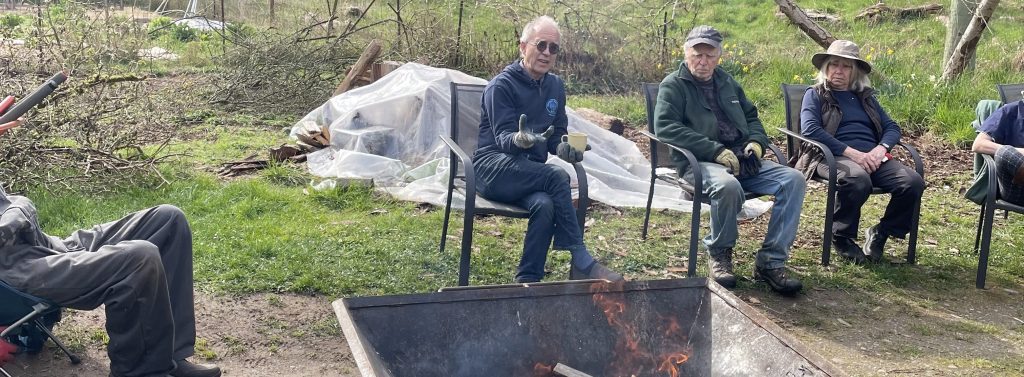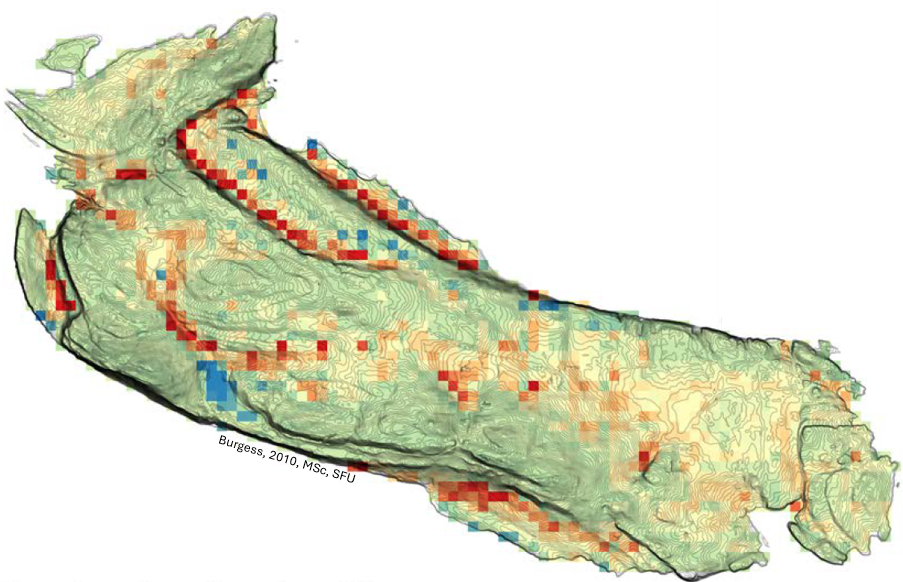
Courses and Workshops
How can we contribute to food security in a changing climate? What food should we grow in response to the changing climate? How is the ecological system around us changing due to Climate Change? What alternatives do we have to current energy sources? How does our carbon footprint relate to global GHG emissions? Explore the answers to these and other questions related to Climate Change in the Gulf Islands.
Understanding Gabriola’s Changing Climate
How hot and dry is Gabriola going to get and how will we be affected? Using 80 years of data from Environment Canada weather stations, well records, and tide gauges, we will explore how the climate of the Gabriola region has changed over the past 80 years and extrapolate to how it will likely change in the future. We will discuss the implications for both human and natural life on Gabriola in the coming decades, and what we can do to prepare for the expected changes.
There will be three 90-minute sessions taught by Steven Earle on consecutive Monday afternoons (2 pm) starting October 20th. The $25 fee will cover course materials and refreshments. Limited to 12 participants.
Contact us if you are interested in taking this course.


Winter Gardening Club
Our next gathering: Monday, Sept. 8th.
Discussion: Is there anything we can plant now? And planting in October and November for spring. Plus a recap of how it’s going with the things we planted earlier.
110 McConvey 3:00 – 4:00 p.m.. Everyone welcome.
For more info please call Mary Wilson at 250-247-0242 , or email info@blueheronlearning.ca.
* * * * * * * * * * * * * * * * * * * * * * * * * * * * * * * * *
Living here, we can have gardens that are productive and provide us with food all year round. Would you like to be better at winter gardening? We would too!
Blue Heron Learning Society is starting a peer-to-peer winter gardening club, to meet once a month, sharing seeds, plant starts, and ideas. Learning together through successes and failures, we’ll follow the expert advice of Linda Gilkeson, a noted gardening expert who lives on Saltspring Island in an ecosystem similar to Gabriola’s. Her book, Backyard Bounty is a great guide for us, and she maintains an email list that we will follow giving tips, when to plant advice, and what to do when it’s very dry, wet, hot or cold.

Biochar Workshops & Community Kiln
Stay tuned to this page for info on the next workshop in the fall of 2025. Dates are subject to weather and suitable ventilation index and will be confirmed a day or two ahead of the burn.
Biochar is an ancient approach to increasing the nutrients and productivity in the soil through creating biochar by charring waste wood, grinding and inoculating it, and then adding it to garden soil. It is also an efficient way to sequester carbon to mitigate the effects of Climate Change.
Once you have taken a workshop you are eligible to borrow the kiln to do your own burn.
____________________________________________
Contact Blue Heron: info@blueheronlearning.ca
How to borrow the Biochar Kiln.
Blue Heron Guide: Biochar 101.

Carbon Footprint Analysis Beyond the Basics
This course is based on a citizen science approach to analyzing the carbon footprint of various actions that might be undertaken by individuals, businesses, and communities. The focus will be on how to factor in carbon footprint analysis into the real-life choices of participants.
The course is five weeks long with a 1-hour class each week for a total of five hours classroom time. Participants will learn how to analyze the greenhouse gasses (GHG) emitted from everyday actions and to compare different options for achieving specific goals in terms of their GHG emissions. They will be provided with information regarding the emission factors of various fossil fuels and different types of waste. Different BC community GHG inventories will be reviewed.
Contact us if you are interested in taking this course.
How to Implement Small Scale Solar, Wind and Hydro Systems
DESCRIPTION COMING SOON
Contact us if you are interested in taking this course.

